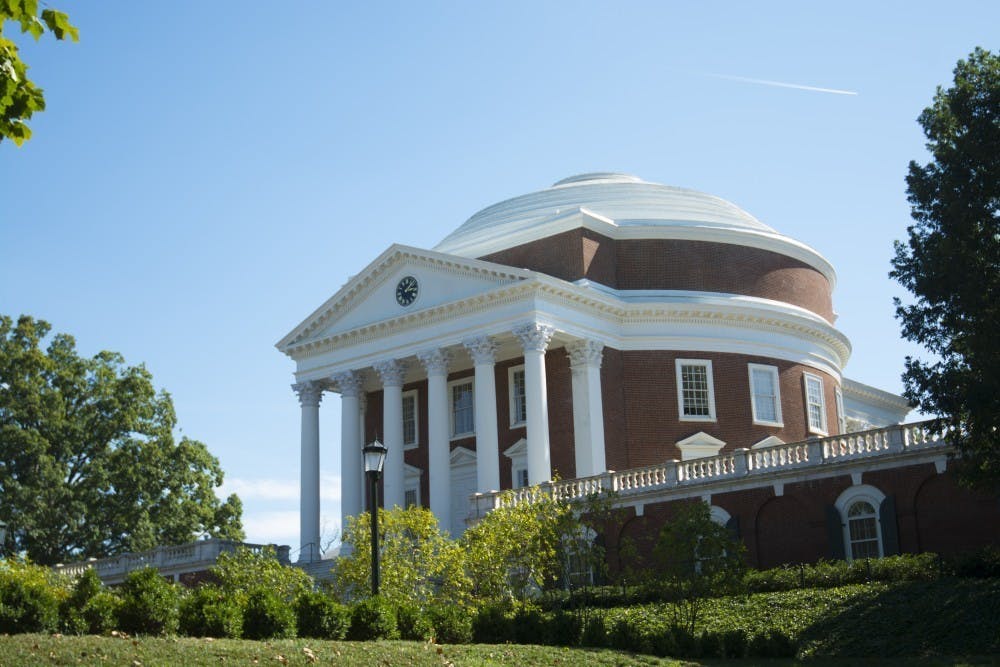Student Council unanimously passed an emergency resolution Tuesday night demanding that the University compensate non-Federal Work Study student employees amid the COVID-19 crisis.
University President Jim Ryan notified the University community March 17 that non-FWS student employees would not be eligible to continue working unless they were able to work remotely. The University recognized the “financial hardship” this decision would cause these students and provided resources for financial services, but chose not to offer compensation.
“For the safety of students and the others with whom they may come into contact, non-FWS student employees who cannot work remotely will not be eligible to continue working while the University’s operating schedule is modified due to COVID-19,” Ryan stated in his email to the University community March 17. “We understand that this will cause some students financial hardship, and we will do whatever we can to help.”
However, students who qualify for FWS will be paid an average of their current wages every other week through the end of the semester. The FWS program is allocated based on financial need and allows students to earn financial aid through University employment.
In this resolution, the Student Council Representative Body called on University administration to reflect on the consequences of their decision to suspend pay for non-FWS student employees and begin “pursuing avenues for non-FWS student compensation.” They also demanded student representation — ideally from members of the first-generation, low income student community — in any further decision making by the administration, and that the University “pay all student employees their estimated earnings based on historical earnings for the remainder of the Spring 2020 semester.”
“This legislation is a reminder to our administration that even though we may not be on Grounds today, we are still going to hold those in power to account,” said Ryan Alcorn, a second-year College student and Student Council representative, in an email to The Cavalier Daily. “I recognize that this is a difficult time for all parties involved, but the University has significant resources to pull from to support non-FWS student employees for the remainder of the semester.”
Seven members of Student Council sponsored the resolution, including Isabella Liu, a second-year College student and Chair of the Representative Body, who authored the legislation.
Liu partnered with the First Generation/Low Income Partnership to create and pass the resolution. According to Liu, she synthesized the concerns of FLIP and the student requests from Student Council’s mutual aid program. When the language was finalized, she sent it out to the rest of the Student Council.
“Like any resolution, I wrote this and entertained it to have the Representative Body take a firm stance and publically and formally weigh-in on this issue,” Liu said.
This resolution noted that other universities have offered “more equitable and compassionate compensation strategies.” Specifically, Emory offered $1,000 stipends to eligible students and later announced that all student employees would be compensated for their estimated earnings for the remainder of the semester.
“When I — and many other students — learned that the administration was not going to compensate non-FWS students, I was very surprised and disappointed by the decision,” Liu said. “Frankly it is at odds with what a lot of our peer institutions are doing.”
Liu noted that multiple representatives and executive board members spoke “passionately” about this issue during the General Body meeting.
“There was no dissent in terms of whether or not we should pass it. That is unusual for a resolution that is definitely on the more liberal side of stances,” Liu said. “I think that that is a testament to how clear cut the just response is from the University in this situation.”
According to Liu, the Student Council has also been working to create a resolution to support contract workers of the University. They have been contacting laid-off employees as well as Aramark and are hoping to introduce the legislation next week.
A petition created by student activists March 17 also for the University to provide non-student workers paid sick leave as contracted workers, such as Aramark workers, have not been extended the continued compensation and benefits that the University has assured to its employees.
The petition also addressed non-FWS student employees and demanded that “all UVA employees, including part-time and student workers, regardless of the circumstances, continue to receive their paychecks from the University — whether they can work remotely or not.” Currently, over 1,110 people have signed this petition.
As someone who has negotiated with University administration in the past, Liu noted that the resolution will hold weight in discussions with the University surrounding this issue.
“Obviously I cannot wave a magic wand and make the University do [the demands], but what this resolution does is offer a formal condonation from a student institution that is supposed to speak for the student body,” Liu said. “Even though this resolution doesn’t have direct jurisdiction, I personally feel it is incredibly important for us to speak out against issues that affect the most vulnerable among us.”
Since the resolution has now been passed, Liu plans to confront the University along with members of FLIP, the representative body, the Student Council administration and student activists. They will be addressing the Critical Incident Management Team, which the University has identified as the decision making body for this issue.
“I am sure that the path to equitable compensation for not just student employees, but also contract employees, will be an uphill battle.” Liu said. “I do believe that if we can coordinate a unified front between student workers, Student Council and student activists, that collectively these groups can make a lot of noise and give the University a big headache, which at the end of the day might turn the tide.”
This article has been updated.







